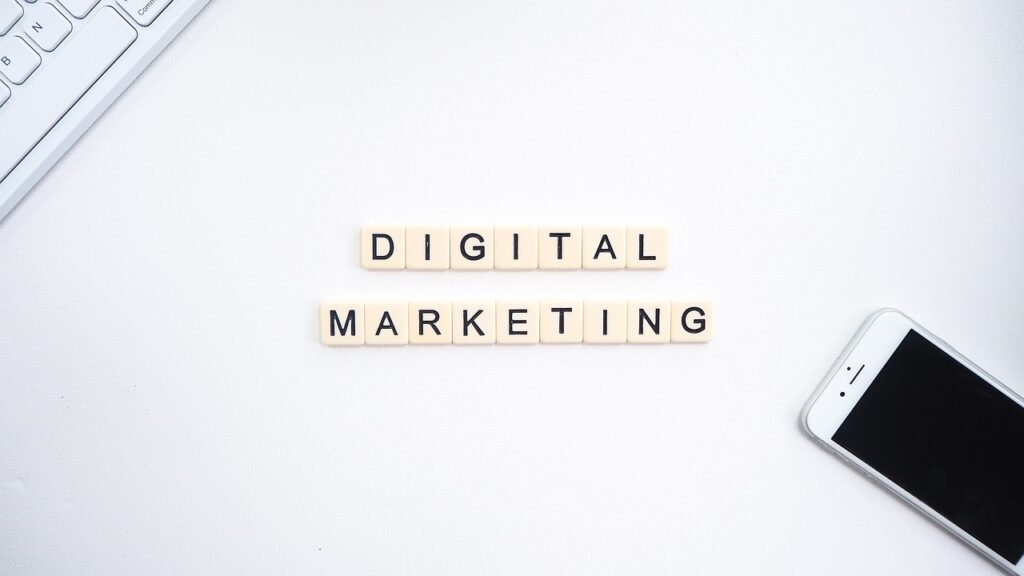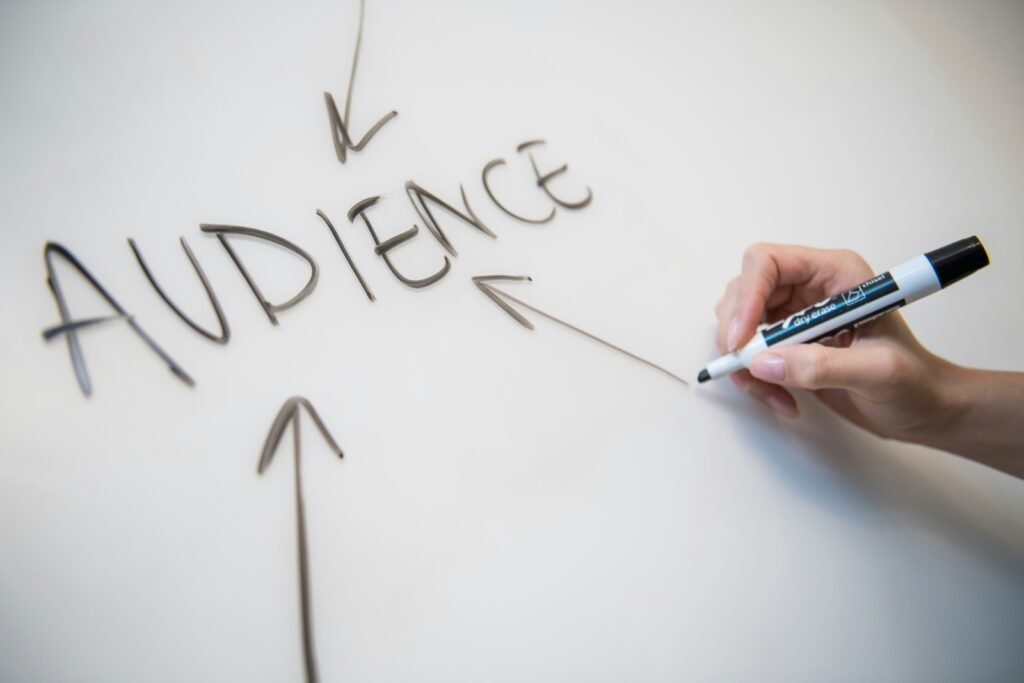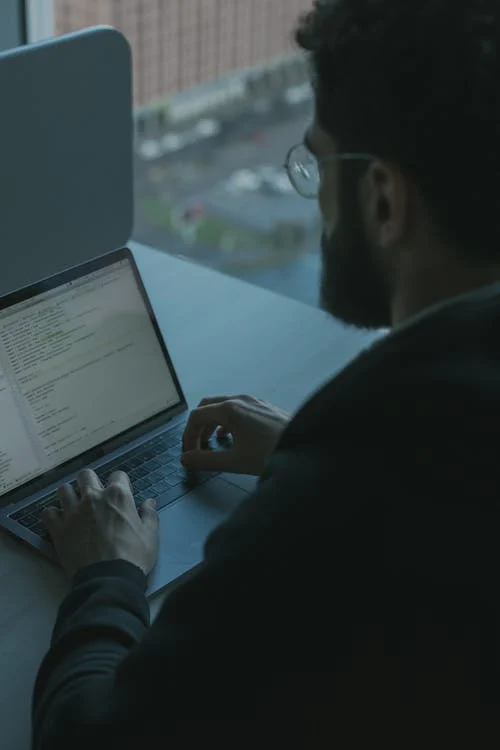Understanding Event Marketing
Event marketing isn’t just another tick in a business strategy checklist—it’s a game-changer! It’s about orchestrating engaging events, from action-packed workshops to mind-blowing product launches, that truly speak to my audience. Done right, it leaves a lasting impression and builds genuine connections.
Benefits of Event Marketing
Using event marketing delivers some pretty cool perks. Here’s what I dig the most:
| Benefit | Description |
|---|---|
| Lasting Connections | Events offer face-to-face interactions, turning handshakes into friendships and acquaintances into advocates. |
| Immersive Brand Experience | Events let folks walk a mile in my brand’s shoes, all in ways no ad could dream of. |
| Targeted Audience Engagement | Connect directly with those who care and share my vibes, giving them a taste of what matters most. |
| Real-Time Feedback | Get the skinny straight from the horse’s mouth, tweaking tactics as they game goes on. |
| Boosted Brand Visibility | Put the brand in the spotlight, making sure it’s the talk of the town. |
| Network Expansion | Say “hello” to new friends, from partners to influencers, expanding the circle big time. |
| Immediate Sales | Seal the deal right there and then, whether through demos or killer special offers. |
| Content Creation | Events spill over with stories and snaps ready to be spun into content gold. |
Want to dig deeper? Head over to my event marketing strategy plan for the full scoop.
Tailoring Marketing Efforts
Making sure my event marketing hits the nail on the head means tuning into what my crowd is really after. Aligning the message with what attendees are buzzing about is key:
Identifying the Audience: Nailing down who’s at the party lets me craft the perfect playlist—or in this case, content and messaging.
Choosing The Right Event Type: Whether it’s an indie film fest or a backyard BBQ, picking the vibe that matches my crowd’s mood is a winner.
Customizing Messages: Put together words and visuals that strike a chord, drawing everyone into the action.
Utilizing Feedback: Notes from past gigs offer a roadmap to what flies and what flops, so I keep rising to the occasion.
With a customized approach, events become a pivotal player in my marketing lineup, especially when navigating through key phases like awareness and discovery (Revenue Marketing Alliance). Need a jumpstart? Check out our sample marketing plan template for a head start.
Importance of Face-to-Face Interactions
In the world of event-driven marketing, it’s pretty clear that chatting face-to-face is gold. It’s like the secret sauce for making folks feel comfy and building real connections with potential customers and partners.
Building Trust
Everyone’s screaming “authenticity” these days and there’s nothing more real than meeting in person. Face-to-face interactions make trust grow, which counts for a lot when everyone seems to be glued to their screens. I’ve seen this firsthand: when people are chatting in the same room, they’re not just learning about some new gizmo or service. They’re actually building long-lasting bonds. As shouted out by RegFox, getting to know people face-to-face is like building a friendship. Well, maybe not exactly a friendship, but close enough to keep folks interested in your brand.
Creating Authentic Connections
Events? They’ve got something special going on! Take Oracle Code One as an example—they don’t just talk about their brand values; they put ‘em into action with green practices or charitable endeavors (Oracle). This doesn’t just leave folks with a warm fuzzy feeling, it makes the brand click on a whole ‘nother level.
Networking gigs, like those Lean Startup throws, are all about creating “aha!” moments with well-thought-out themes (Lean Startup). They’re like networking but with sprinkles on top, making sure those connections last long after the event wraps up.
So, when I’m cooking up my event marketing strategy, I always sprinkle in some face time. It’s like adding yeast to bread—makes everything expand! It’s this dedication that opens the door to stronger brand loyalty, fresh leads, and community vibes that stick around.
Making Your Brand Stand Out
Okay, let’s talk about giving your brand the spotlight it deserves. In this biz world, you gotta shine to climb. One smart ticket to get there? An event-driven marketing plan. These gigs are where your brand gets to strut its stuff, and snag the attention of your crowd.
Brand Awareness
Think of events as your brand’s stage, where it gets all up close and personal with folks. Your logo, your vibe, and what you’re selling—you name it, it’s out there, front and center (RegFox). This helps people remember you, setting the stage for strong impressions and keeping you in their heads. In simple words, it gives your business a leg up to stand out from the rest of the pack.
Wanna know if your event was a hit? You can check a bunch of things like how many times people talk about you online, or if more folks are clicking on your website after the shindig. Here’s a quick list of what you can keep an eye on:
| Checkpoint | What’s Going On |
|---|---|
| Chatter on Social Media | How many folks drop your name |
| Website Visits | How many new clicks you get after the boom |
| Chit-Chat Rate | How much social media action you stir |
| New Connections | How many fresh contacts you nail down |
By watching these, I can see just how much an event pumps up my brand vibe.
Boosting Brand Recall
Events aren’t just about seeing and being seen right then and there. They come in super handy when you’re trying to solve your audience’s puzzles or just get them to notice you exist (Revenue Marketing Alliance).
Think of events as memorable meet-ups. You get to chat face-to-face with people, making it easier for them to remember you. It’s also about building friendships and keeping the existing ones warm, which strengthens loyalty to your brand. Doing this event thing right isn’t just a one-time win but a long game with repeat visits to your business and a golden name out there.
In the grand scheme, tagging events along with my marketing gig could really crank up the volume on brand recognition. With some clever planning and doing, I can pull off experiences that really click with my audience, tightening bonds and beefing up loyalty. For anyone rolling up their sleeves to put together a killer marketing plan, check out the sample marketing plan template and how to create a marketing plan for some handy tips.
Metrics for Event Success
So, you’re throwing an event and wanna figure out if it was actually a hit or not, right? Well, I keep an eye on a few key stats that paint a pretty picture of how my crowd is vibing and how much they dig what I’m offering. Oh, and yes, all this jazz falls under things like check-ins, surveys, and the magic Net Promoter Score (NPS).
Event Check-Ins
First up, check-ins. You know when your guests actually show up and shout, “I’m here!” That’s not just a headcount. It’s your telltale sign of how well you’ve spread the word and gotten folks off their couches. Just last year, a whopping 50% of folks registered for virtual events ended up joining in for real (Bizzabo).
| Stat | Value |
|---|---|
| Registration | 100% |
| Show-Up | 50% |
Check-in numbers tell me if folks are genuinely into what I’m putting out there. With that intel, I can tweak my hype game for the next rodeo.
Event Surveys
Alright, onto surveys. Picture this: a gossip session with your guests. That’s where they spill the beans on what made them cheer or snooze. Whether you check in on ’em before, during, or after your bash, these surveys are gold for cooking up something even more fabulous next time. They’re the secret ingredient to getting up close and personal with what tickles their fancy.
| Survey Time | What It Does |
|---|---|
| Before Party | Suss out hopes and dreams |
| During Party | Catch the live feelz |
| After Party | See if it was lit or not |
This method keeps me on my toes, always striving to make my events something folks won’t shut up about.
Net Promoter Score
The Net Promoter Score — oh, this is where we bring in the big guns. This little number is your mood meter. It tells ya how much your guests loved or loathed the whole shebang. To get this magic number, just take a ratio of enthusiasts minus the party poopers. Higher numbers? That’s your cue for “High-fives all around; we’re crushing it!”.
| NPS Breakdown | Percent |
|---|---|
| Fans (9-10) | 70% |
| Fence Sitters (7-8) | 20% |
| Frowny Faces (0-6) | 10% |
| NPS Total | 60% |
NPS is my hotline to how much my gig rocked, guiding me on where to sprinkle a bit more fairy dust on my marketing magic.
By homing in on these handy markers, I can sniff out if my event is hitting the spot or just missing the mark. Want to draft your own master plan? Swing by and peep our sample marketing plan template.
Active Community Engagement
Hanging out with the folks at your events really matters when it comes to getting folks on board and picking up some golden nuggets of wisdom. I keep my eye on how people are vibing and find ways to get them more involved. This jazzes up my game plan for making events successful.
Tracking Engagement
Keeping tabs on how folks mix and mingle at events gives me the scoop on what’s working and what’s a flop. One juicy tidbit is the number of chats flying among the crowd. This number tells me whether the scene is poppin’ and if folks are actually clicking with one another (Bizzabo).
| Engagement Metric | Description |
|---|---|
| Attendee Messages Sent | Count of direct messages shared among attendees |
| Session Participation | Percentage of folks attending different sessions |
| Feedback Rating | Average satisfaction score from attendee surveys |
COVID-19 turned the spotlight on online hangouts, bringing more cool tools for seeing who’s engaging versus face-to-face events. This has nudged towards a style that crunches numbers more when plotting events (revenuemarketingalliance). Using platforms with real-time stats lets me tweak things on the fly based on what people are saying and doing.
Enhancing Attendee Engagement
Making people feel the vibe needs some slick prep and a sprinkle of creativity. I try out various tricks to get people involved at my gigs. Like, for example, networking pow-wows that Lean Startup throws. They’re built around themes that make meeting folks a breeze (Lean Startup).
With a whopping 86% of folks using at least two channels when chit-chatting with brands, personalizing the touchpoints is key (Pushwoosh Blog). Running event-based marketing across different channels keeps everything smooth and amps up how I do my thing. Sending out push notifications, in-app nudges, and zingy emails based on what people do helps me keep them hooked throughout the event shebang.
To get folks really pumped, I bring in fun stuff like live polls, Q&A bits, and chat groups. These bits get people talking and sharing their cool ideas, making everyone feel part of a bigger conversation. This kind of engagement sets the stage for chats after the event and helps forge meaningful bonds, strengthening the event community.
For more handy tips on amping up your event marketing strategy, check out our event marketing strategy plan.
Evolution of Event Marketing
Event marketing has been changing a ton lately, thanks to stuff going on around the globe. It’s super important to keep up if you want to nail an event-driven marketing plan.
Shift to Online Events
The whole COVID-19 thing really shook things up, pushing loads of businesses to go online with their events, turning event marketing on its head. Going virtual has given us more goodies to track what people are actually doing and how engaged they are than the old-school events. Thanks to online platforms, we can snag all sorts of data, like how many folks tuned in, how long they stuck around, and what they did during the event, info that just wasn’t possible before.
| Metric | Online Events | Offline Events |
|---|---|---|
| Participation Levels | Easily measurable | Often estimated |
| Engagement Duration | Trackable via platforms | Limited tracking |
| Interaction Insights | Real-time feedback | Post-event surveys |
This shift to digital has people planning events with data in mind, letting marketers tweak their game plans based on what they learn.
Rise of Hybrid Events
As we get back to meeting face-to-face, hybrid events—a combo of in-person and online parts—have become the new thing. They let businesses cater to different people’s likes by playing to the strengths of both types. Keynotes can get a buzz from live crowds, while online breakout sessions pull in a much bigger audience (Revenue Marketing Alliance).
Hybrid events offer all sorts of options and make it easier for folks who can’t travel to join in the fun. This new way of doing events means businesses can step up their engagement by reaching more people.
| Feature | Hybrid Events | Traditional Events |
|---|---|---|
| Audience Reach | Broader and inclusive | Limited to attendees at the venue |
| Engagement Tools | Enhanced digital tools | Basic interaction |
| Cost Efficiency | Potentially lower overall costs | Generally higher due to logistics |
As I surf through these changes, keeping tabs on these trends is a must for cooking up a strong marketing plan. Mixing online and face-to-face stuff will keep the wheels turning, and it’ll shape how we think about marketing down the road. If you’re curious about getting your marketing chops up, check out how to create a marketing plan that uses these event tricks.
Data Collection in Event Marketing
In the world of marketing, snagging the right data is crucial for my event-planning and marketing mojo. Knowing how to handle this on both online platforms and offline events plays a big part in boosting how I collect data and connect with attendees.
Online Platforms vs. Offline Events
Online platforms are the rock stars of event marketing, especially with the curveball thrown by COVID-19. These platforms come packed with high-tech tools for tracking and engaging, giving me loads of juicy insights. They’ve turned the spotlight on data, letting me gather and study the stats without a hitch (revenuemarketingalliance).
On the flip side, offline events used to struggle with data collection, depending on old-school methods like sign-in pages and surveys sent out after the fact. But these days, there’s a push to bring tech to the physical space, leveling up how attendees interact and how I segment and collect info overall.
Here’s a quick peek at how online and offline events stack up for grabbing data:
| Feature | Online Platforms | Offline Events |
|---|---|---|
| Data Tracking | Tracks on its own with instant analysis | Old-school tracking |
| Attendee Engagement | Fun tools like polls and chats | Not-so-many ways to interact |
| Data Segmentation | Smart segmentation based on actions | Basic data about who attends |
| Reporting and Analytics | Fast reports and pretty graphs | Reports take a while |
Advanced Data Capabilities
As I navigate event marketing, boosting my data game is key. Online platforms lead with killer tools for capturing all sorts of attendee behavior and preferences. This toolbox lets me throw together a more tailored experience for everyone.
Some top-notch features include:
- Real-time Analytics: Get instant data feedback to tweak the event as it happens, keeping attendees happy.
- Behavioral Tracking: Keep tabs on how folks engage with different parts of the event—from talks to networking.
- Enhanced Segmentation: Sort audiences by their actions during the event, making follow-up marketing sharp and on point.
Throwing resources into a solid data setup lines my marketing goals up with what attendees are into, boosting my chances of scoring big. For more tips on crafting a winning marketing plan, you can check out our sample marketing plan template or learn how to create a marketing plan.
Event KPIs and Evaluation
Sizing up how swell my marketing shindigs are going, particularly with event-focused strategies, demands a good look at those key performance indicators, or KPIs as the cool kids say. The big kahunas here are figuring out the Customer Acquisition Cost (CAC) and how events mix into the sales dance.
Customer Acquisition Cost Analysis
So, Customer Acquisition Cost (CAC) – it’s like the gold standard to see if all that event hype is flushing money down the drain or reeling in paying folks. With our COVID-era gadgetry, keeping tabs on both virtual and in-person gigs is a breeze. A rock-solid CAC check tells me how much dough drops straight into getting new peeps on board, lifting the whole marketing agenda off the ground (Revenue Marketing Alliance).
Crunching the CAC numbers means tallying up every dime spent on any bash – think setup, the main event, the whole shebang – divided by those fresh faces who signed on during and after my spiel. It’s a snapshot of whether throwing bucks at events is worth it or not.
| Metric | Calculation | Importance |
|---|---|---|
| CAC | Total Event Cost / New Customers Acquired | Seeing if shelling out cash for customers makes sense |
Getting a grip on CAC lets me fine-tune where to shell out for future events and get creative with marketing antics. For more tricks on nailing down a cozy marketing playbook, I sneak a peek at the marketing tactics for small businesses.
Role of Events in Sales Cycle
Events aren’t just about free hors d’oeuvres. They’re key players in getting potential clients aware and ready to buy. Whether I’m showing my face at public gigs for wider audience reach or throwing my own shin-digs for closer knit interactions, each side has its goodies. Reports say hosting my own thing lets me tweak the vibes and have quality face-time with the folks, making them more beneficial when everyone’s starting to notice a product (Revenue Marketing Alliance).
Eyeing the role of events, I suss out how much customers bite, the lead conversion hoopla, and the coin they’re bringing in thanks to the event.
| Stage of Sales Cycle | Type of Event | Impact |
|---|---|---|
| Problem Awareness | Third-party Events | Casts a wide net, stirs curiosity |
| Solution Awareness | First-party Events | Keeps it personal, targets the right folks |
| Product Awareness | First-party Events | Real-deal interaction, seals the deal with leads |
These insights get my event mojo working in high gear, stepping up the whole activity’s punch. If strategic blueprints are your jam, scope out the event marketing strategy plan, ready to stealthily weave events into all things marketing.





















